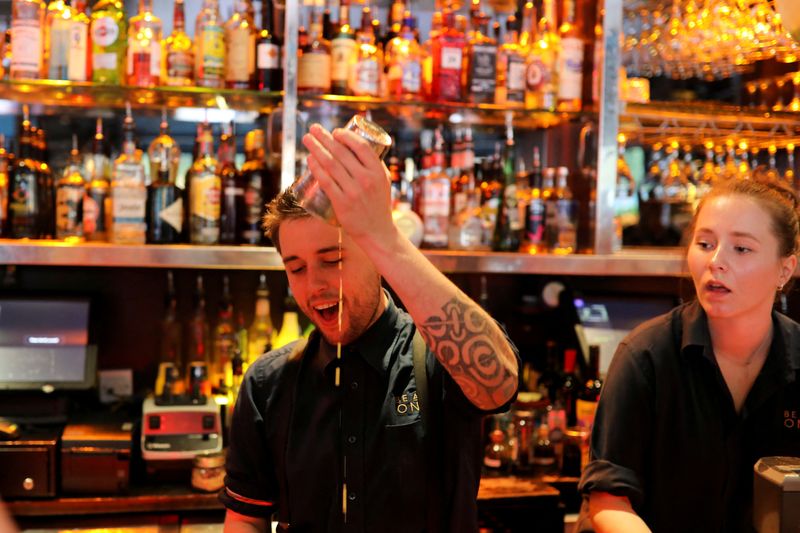Major distillers like Diageo and Pernod Ricard are tapping into the growing trend of bottled cocktails in the United States, offering consumers a convenient alternative to traditional mixed drinks. This shift, which has accelerated since the COVID-19 pandemic, offers a new way for Americans to enjoy classic cocktails like Old Fashioneds, Negronis, and Espresso Martinis without the need for a bartender.
These bottled cocktails, unlike individual canned options, can contain up to 750 milliliters of alcohol. They are positioned as a festive and convenient option for holiday parties, potentially replacing wine as a popular gift among guests.
Consumers have responded positively to this trend. Nylaya Corbin, 22, from New York, praised Diageo’s Espresso Martini for its strength and quality, noting it surpassed her experiences in bars and restaurants. Similarly, Caroline Zatina, 37, from Charleston, South Carolina, highlighted the cost-effectiveness of these cocktails amid rising living expenses.
Ann Mukherjee, outgoing CEO of Pernod Ricard North America, emphasized that today’s drinkers seek both quality and convenience. The pandemic has highlighted the cost savings of drinking at home, and bottled cocktails offer a simple solution for those wanting to enjoy mixologist-level drinks without the effort.
However, not everyone is convinced about this new trend. Igor Zukowiec, founder of New York’s Alchemiq catering and mixology company, believes that bottled cocktails, while of good quality, cannot replicate the bespoke experience and craftsmanship of bar-made drinks.
The rise of bottled cocktails is reshaping the alcohol market, challenging the dominance of beer and wine. Diageo aims to become a market leader in this category, investing in advertising and promotional activities. The “ready-to-drink” alcohol market, including bottled cocktails and canned options, is projected to reach $21.1 billion in the U.S. by 2027.
This shift in consumer preferences towards convenience and quality in alcoholic beverages is occurring alongside increased scrutiny from public health groups like the WHO on the health impacts of alcohol consumption.
